Resilient, Innovative, Self-Reliant: The Future Path of India’s Textile Engineering
At the 65th Annual General Meeting (AGM) of the Textile Machinery Manufacturers’ Association (India) [TMMA], Chairman Mr. M. Sankar extended a warm welcome to distinguished guests including Mr. Rohit Kansal (IAS), Additional Secretary, Ministry of Textiles, and Dr. M. Beena, Textile Commissioner
He highlighted how, despite a global slowdown, India stood out with 6.5% GDP growth in FY 2024–25, proving itself as a beacon of stability
.Performance Snapshot of the Textile Engineering Industry (TEI)
• Production declined 29% YoY, down to ₹10,461 crore.
• Exports of textile machinery fell sharply by ~50%, while imports declined modestly.
• Capacity utilization slipped from ~80% to ~60%.
• Yet, domestic share of machinery demand rose from 28% to 36% in five years, a sign of growing indigenous strength
Policy & Trade Advocacy
Chairman Sankar urged reforms to accelerate growth:
• Quicker GST refunds to improve user industry liquidity.
• Export funding reforms faster, single-window loans to support competitiveness.
• Targeted incentives to offset US tariffs. He also flagged reciprocal tariffs from the US that hit exports, especially in Tirupur, Ludhiana, Panipat, Karur, and other clusters
.
. Government’s Vision & Commitment
In his keynote, Mr. Rohit Kansal (IAS) emphasized:
• India’s $176B textile ecosystem, targeting $350B by 2030 with $100B exports
• Machinery production at ₹15,000 crore, but imports of ₹17,000 crore show only 50% self-reliance both a challenge and opportunity.
• Sustainability begins with efficient machinery: low-energy, low-water, recyclingenabled systems.
• Government is preparing a National Textile Manufacturing Mission built on three pillars:
1. Technology Roadmap – AI, digitization, forecasting, productivity.
2. Sustainability & Circularity – decarbonization, recycling, eco-efficiency.
3. Manufacturing Strengthening – building cost-efficient, competitive machinery
He concluded: “India’s textile growth story is inseparable from its machinery ecosystem. We cannot achieve Vision 2030 or Vision 2047 without a competitive, indigenous textile machinery sector.”
Recognising Excellence Awards 2024–25
The AGM celebrated outstanding performers with Export Excellence & R&D Awards
• Apex Export Award: Rieter India Pvt. Ltd., Pune (Exports: ₹239 crore).
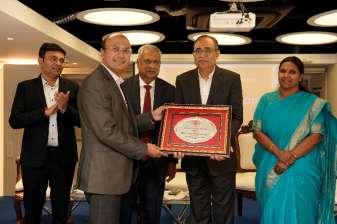
Mr. Pankaj Dangra, Head of Marketing Services of the Company.
• Machinery Sector: Kirloskar Toyota Textile Machinery Pvt. Ltd., Bangalore (Exports: ₹188 crore).
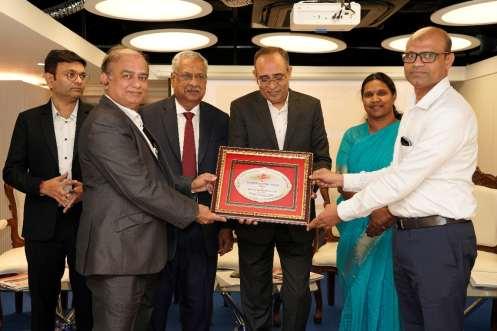
Mr. BGD Anandakumar, GM and Mr. Anil Shinde, Area Manager Sales of the Company.
• Parts& Accessories (JointWinners): Lakshmi CardClothing Mfg.Co.Pvt. Ltd. (₹34 crore) & Luwa India Pvt. Ltd. (₹34 crore).
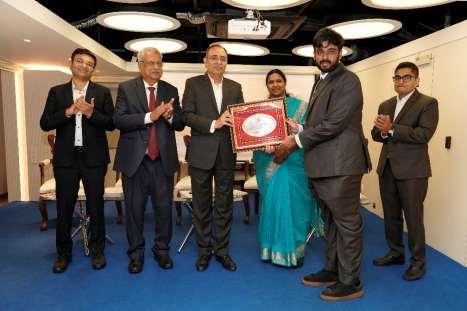
Mr. B. Anirudth, Whole Time Director of the Company.
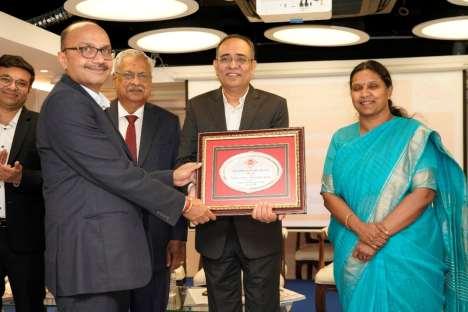
Mr. P. K. Singh, Managing Director
• Testing Instruments: Premier Evolvics Pvt. Ltd., Coimbatore (₹32 crore).
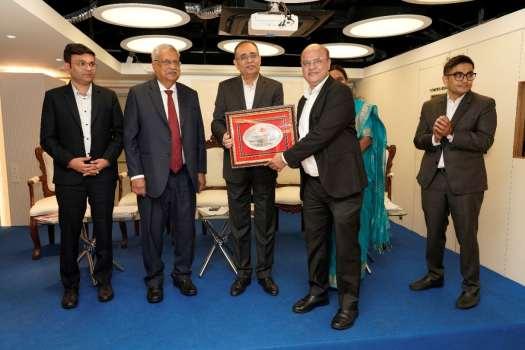
Mr. Sanjay Gandhi – Vice President -Sales
• Special Export Awards: Truetzschler India (Spinning), Aalidhra Textile Engineers (Synthetics), Yamuna Machine Works (Processing), Indian Card Clothing (Accessories), Colorjet India (Small Scale Machinery), Sieger Spintech (Small Scale Accessories).
Truetzschler India Private Limited, Ahmedabad
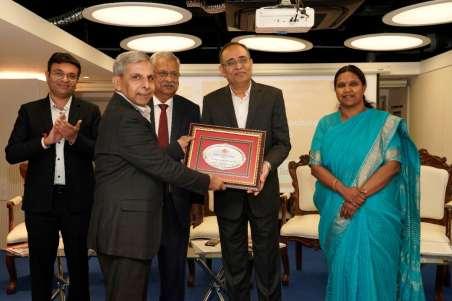
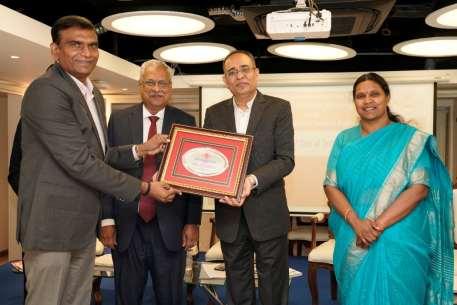
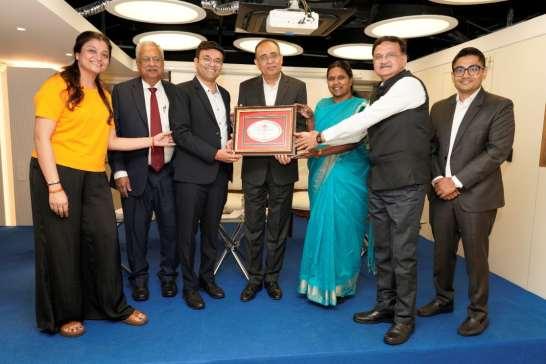
Mr. Prashant Mangukia, Managing Director, Mrs. Mangukia, and Mr. G.V. Aras of the Company.
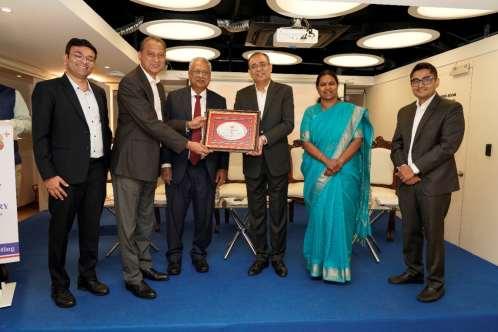
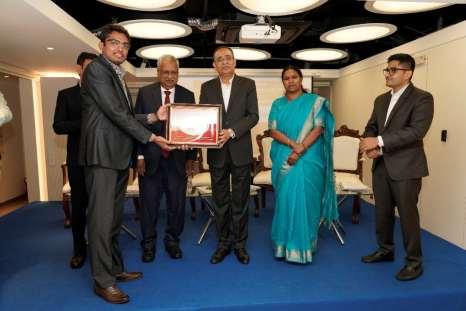
Sieger Spintech Equipments Private Limited, Coimbatore
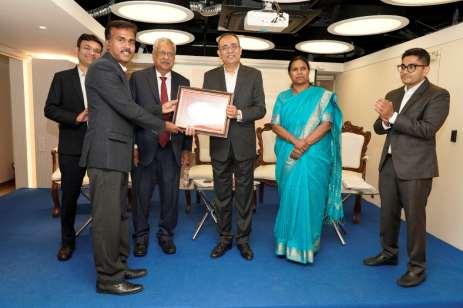
Mr Viswanathan, DGM R&D
• R&D Innovation Award: Indian Card Clothing Co. Ltd. – Non-Metallic Card Wire for Jute Carding.
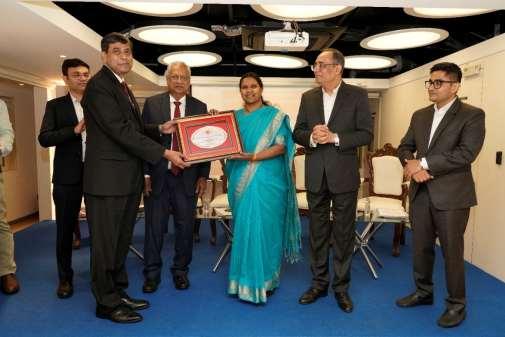
Mr. Ashok Kumar Pal – VP (Product development & Technical support)
The Indian Card Clothing Co. Ltd., Pune has pioneered a remarkable innovation – the “Non-Metallic Card Wire for Jute Carding Process.”
Unique Strength: This breakthrough replaces traditional pinned staves on jute carding machines with a newly designed metallic card clothing system. By doing so, it significantly enhances working efficiency, boosts productivity, and ensures superior quality output.
This innovation not only modernizes the jute carding process but also paves the way for higher reliability, consistency, and sustainability in jute manufacturing strengthening India’s position in global natural fibre processing.
• Certificates of Appreciation: Colorjet India (EARTH NEXT sustainable printer), Rabatex Industries (Mono Mother Yarn Split Warping Machine), Sieger Spintech (Automated Inline Package Inspection System).
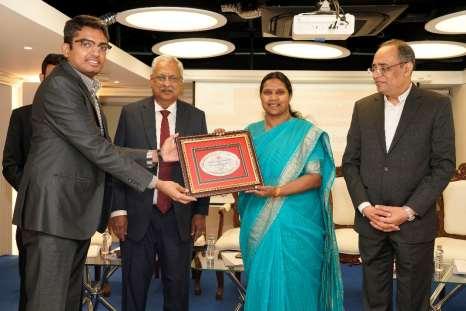
Mr. Aditya Dadu, Director
A Certificate of Appreciation is proudly presented to ColorJet India Limited, Noida for their groundbreaking innovation “EARTH NEXT – A Direct-to-Fabric Sustainable Digital Printing Machine with Inline Additives System.”
Innovation with Purpose: The EARTH NEXT redefines textile printing by integrating an advanced Inline Additives System that seamlessly brings pre- and post-treatment into the printing process itself. This eliminates the need for separate machinery and manual handling, thereby saving energy, water, chemicals, time, labor, and valuable floor space.
Transforming Print Quality: By applying pre-treatment chemicals with precision during printing, the system ensures consistent coating, enhanced color brilliance, sharper details, and superior fabric durability delivering both beauty and resilience in every design.
Sustainability Meets Efficiency:
No need for separate pre- and post-treatment equipment
Reduced production time, labor, and operational footprint
Softer fabric handle with a premium finish
A perfect blend of sustainability, efficiency, and high-quality textile production
ColorJet’s EARTH NEXT is not just a machine it is a vision for the future of eco-conscious textile manufacturing, aligning technology with sustainability and creativity.
A Certificate of Appreciation is proudly awarded to Rabatex Industries, Ahmedabad for their pioneering innovation the “Mono Mother Yarn Split Sectional Warping Machine.”
Precision in Every Strand: This advanced warping system is specially designed to manage multi-strand synthetic yarn packages, such as mother yarns that are later split into fine mono yarns. For instance, a 240 denier mother yarn can be precisely divided into 12 strands of 20 denier monofilament yarn, ensuring exact uniformity and consistency.
Engineering Excellence: The machine warps each yarn onto the large warping drum in carefully measured sections, with precise control over head weight and width according to weaving requirements. Once the warping process is complete, the yarns are seamlessly unwound onto a weaving beam, ready to deliver flawless performance on looms.
Innovation that Empowers Weaving: With unmatched accuracy, efficiency, and adaptability, this breakthrough sets new standards in sectional warping strengthening weaving quality, productivity, and reliability for modern textile manufacturing.
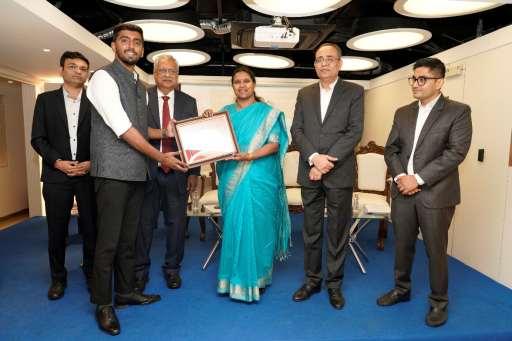
Mr. Keyur Panchal, Director
A Certificate of Appreciation is proudly awarded to Sieger Spintech Equipments Private Limited for their breakthrough innovation the “Automated Inline Package Inspection System” designed for rotor and yarn winding machines.
Redefining Quality Control: This state-of-the-art system brings automation, precision, and reliability to package inspection, ensuring every yarn package is checked in-line without disrupting production. By eliminating manual errors and enhancing real-time monitoring, it guarantees superior quality, consistency, and efficiency across the winding process.
Driving the Future of Spinning: With its intelligent design and seamless integration, the system not only reduces labor dependency but also boosts productivity, making it a gamechanger in modern spinning operations.
A true step forward in combining automation with excellence, this innovation showcases Sieger Spintech’s commitment to advancing the textile industry with smarter, more sustainable solutions.
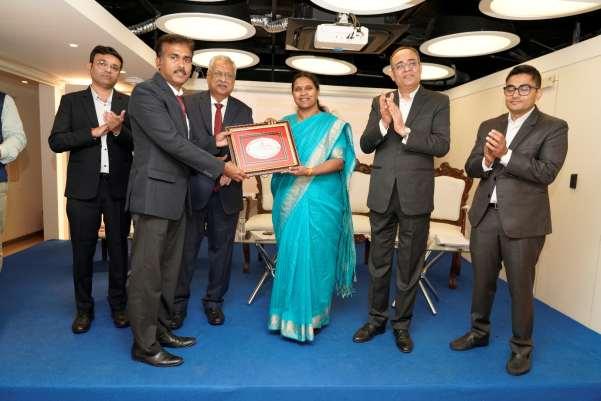
. Leadership Transition
• Mr. Prashant Mangukia takes over as Chairman from Mr. Sankar.
• New team: Mr. Chintan Thumar (Vice Chairman), Mr. N. K. Brahmachari, and Mr. Ganesh Shenoy
• Outgoing Chairman thanked past leaders, ITAMMA, India ITME Society, and TMMA Secretariat for their contributions
. Conclusion A Call for Collective Action
The 65th AGM highlighted both headwinds and opportunities:
• Global challenges (tariffs, conflicts, inflation) remain pressing.
• Domestic opportunities (localization, sustainability, AI, circularity) are transformative.
• With policy support, industry innovation, and resilience, India’s TEI can double its contribution and truly embody Atmanirbharta
Inspiring “From resilience in adversity to innovation for the future, the Textile Engineering Industry is not just supporting India’s textiles it is powering India’s march to global leadership by 2030.”
